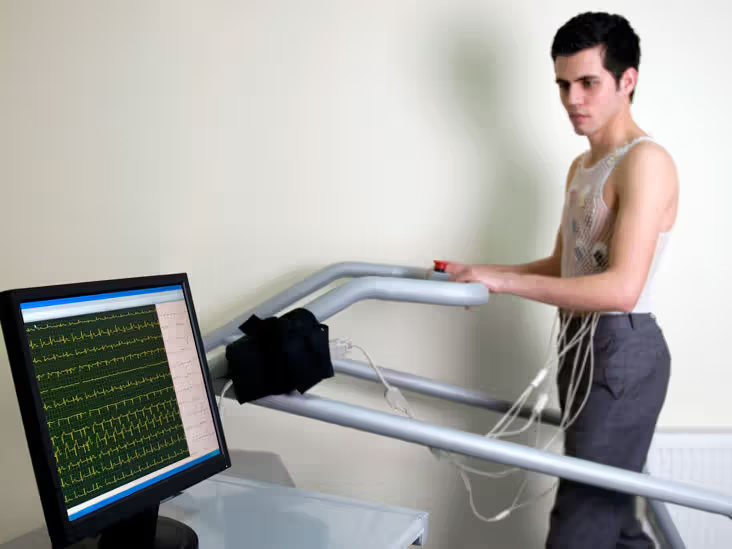In the realm of cardiology, diagnostic tests play a crucial role in assessing heart health and identifying potential issues. Among these tests, the TMT (Treadmill Test) and stress test are commonly used to evaluate heart function and detect abnormalities. While both involve physical exertion, they serve distinct purposes and offer unique insights into cardiac health.
What is a TMT Test?
The TMT test, also known as the Exercise Tolerance Test (ETT) or simply the treadmill test, is a non-invasive procedure used to evaluate how the heart responds to exercise. During the test, the patient walks on a treadmill while their heart rate, blood pressure, and electrocardiogram (ECG) are continuously monitored. The treadmill's speed and incline gradually increase, simulating physical exertion and placing stress on the heart.
How Does it Differ from a Stress Test?
While the terms "TMT test" and "stress test" are often used interchangeably, it's essential to understand the nuances between the two. A stress test is a broader category of cardiac tests that includes various methods of inducing stress on the heart, such as exercise or medication. The TMT test is a specific type of stress test that utilizes treadmill exercise to evaluate cardiac function.
One key difference between the TMT test and other stress tests lies in the method of inducing stress. In a TMT test, the stress is induced through physical exercise on a treadmill, whereas other stress tests may use pharmacological agents to simulate stress in patients who are unable to exercise.
Additionally, the TMT test provides valuable information about the heart's response to physical activity, including the presence of exercise-induced ischemia (inadequate blood flow to the heart muscle). This makes it particularly useful for assessing patients with suspected coronary artery disease or evaluating their exercise capacity.
Conclusion
In conclusion, the TMT test is a valuable diagnostic tool in the field of cardiology, offering insights into heart function and exercise tolerance. Its ability to simulate physical exertion makes it an effective way to assess cardiac health, especially in patients with suspected coronary artery disease. However, it's essential to consult a qualified healthcare professional for accurate interpretation of test results and appropriate management.
One such expert in the field of cardiology is Dr. Umesh S. Hange, MD, DM (Cardiology), a renowned at Cardio Nuro Care Clinic Heart & Blood Vessel Specialist. With his extensive experience and expertise gained from institutions like LTMMC, Mumbai, and the John Hopkins Institute (USA), Dr. Hange brings a wealth of knowledge to the diagnosis and treatment of cardiac conditions. Patients can trust in his guidance and expertise for comprehensive cardiac care.
Understanding the differences between the TMT test and other stress tests empowers individuals to make informed decisions about their heart health. By working closely with healthcare professionals like Dr. Umesh S. Hange, patients can take proactive steps towards maintaining a healthy heart and preventing cardiovascular disease.
For More Info: cardioneurocare.com

